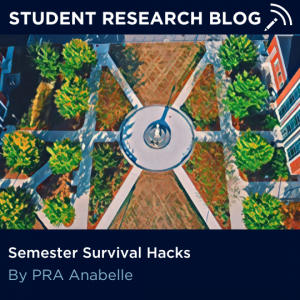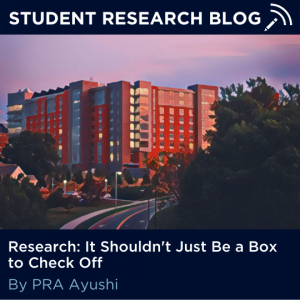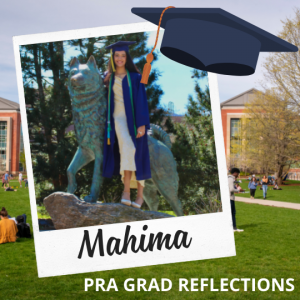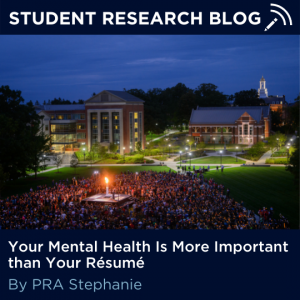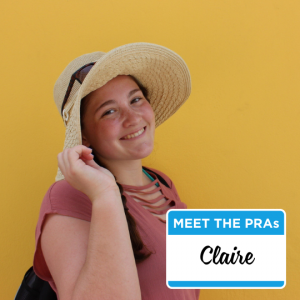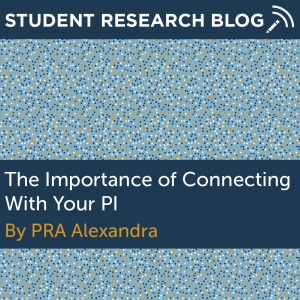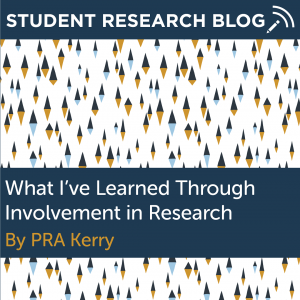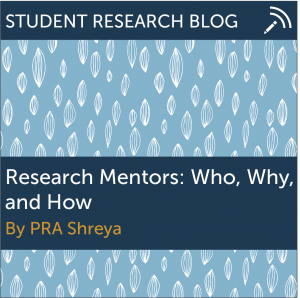Dr. Corey Acker
Department of Cell Biology |
The student will support testing of new voltage-sensitive dyes using cell culture assays. Custom fluorescence microscopy equipment is used along with patch clamp electrophysiology to control and monitor the voltage inside cells, including human stem cell derived heart cells, by recording voltage changes optically as well as electrically. MATLAB is used for all aspects, from hardware control to data analysis. |
SU20-1 |
| Dr. Byoung-Il Bae
Department of Neuroscience |
The student will study the neurodevelopmental basis of autism spectrum disorder. She/he will characterize rare variants of the neurodevelopmental gene ASPM, which have been implicated in autism. She/he will generate the mutant constructs by site directed mutagenesis, and evaluate their effects on the protein levels of ASPM, the Wnt/beta-catenin signaling pathway, and neural progenitor cell proliferation. Successful completion of this project will elucidate how young patients with autism have larger than normal head circumferences (“macrocephaly”), and how abnormal neurodevelopment alters neural circuits for social behaviors. |
SU20-2 |
Dr. Jean-Denis Beaudoin
Department of Genetics and Genome Sciences |
The trainee will have the opportunity to use CRISPR technologies to generate zebrafish loss of function mutant of RNA helicases. This project includes bioinformatics search of RNA helicase candidates, design of CRISPR strategies, injection of CRISPRs in zebrafish embryos, genotyping fish to find mutant alleles and look for developmental and molecular defects in loss of function mutants. Depending on the trainee’s interest, there is also a possibility of using cell lines to study translation regulation using transfection and massive parallel reporter assays (measuring the regulatory activity of thousands of sequences in a single experiment using high throughput sequencing). |
SU20-3 |
Dr. Michael Blinov
Center for Cell Analysis and Modeling |
Mathematical modeling of biological processes is important to gain understanding of the underlying biological mechanisms and predict dynamics and outcomes of experiments and medical interventions. Mathematical models describe interactions among components of biological systems. Models are implemented and simulated in the Virtual Cell (http://vcell.org) software using GUI. We will develop a set of small models (ModelBricks, http://modelbricks.org) that serve as building blocks for larger models. |
SU20-4 |
Dr. Margaret J. Briggs-Gowan
Department of Psychiatry |
The Adaptation and Resilience in Childhood Study is an NIMH-funded study investigating the effects of domestic violence on young children, ages 4-6 years. The summer intern will have the opportunity to assist with study activities which include developmental testing, computerized activities that assess children’s processing of facial stimuli, puppet interviews, and in-depth interviews with mothers about family life and the child’s development, postraumatic stress, and well-being. Psychophysiological data are acquired during visits, including heart rate, skin conductance and event-related potentials. The summer intern will be an integral part of the study team and will have ample opportunity to get hands on research experience. |
SU20-5 |
Dr. Caroline Dealy
Departments of Reconstructive Sciences, Biomedical Engineering, Orthopedic Surgery and Cell Biology |
The overall goal of this project is to develop a clinically-relevant approach to improve articular cartilage repair. In animal studies, we have identified a growth factor that stimulates cartilage repair potential by tissue-resident progenitor cells present in articular cartilage. This summer project will take the first translational step towards our goal by evaluating the effects of the pro-regenerative growth factor on progenitor cells in human articular cartilage. The project will identify the optimal dose and duration of growth factor treatment that maximally stimulates progenitor cell repair potential. Techniques will include tissue culture, histology, PCR, immunohistochemistry, confocal microscopy and digital imaging. |
SU20-6 |
Dr. Jennifer Garza
Department of Medicine, Division of Occupational and Environmental Medicine |
We are seeking students interested in a summer research opportunity to join the UConn Study on Aging, Musculoskeletal Health, and Retirement (UConn-SAM) team. For their summer projects, students will measure work and out-of-work activity patterns of UConn-SAM participants with and without eldercare responsibilities. The opportunity includes field work, recruitment and interaction with study participants, and analysis of work and out-of-work activity data. Students will test the hypothesis that individuals with eldercare responsibilities will have different work and out-of-work activity patterns compared to those without eldercare responsibilities. |
SU20-7 |
Dr. Damion Grasso
Department of Psychiatry |
Student effort would involve interacting with human research participants and participating in data collection/management on two primary projects conducted at our Family Adversity and Resilience Research Program in West Hartford. The first is a follow-up component of an NICHD funded study examining the intergenerational transmission of trauma and stress in mothers and their infants. Research activities involve a 3-hour visit in which mother and infant participate in a laboratory stress paradigm and physiological data are collected to measures infant stress reactivity. The second is an NIMH funded study examining biological and behavioral indicators of stress reactivity to explain the relationship between early violence exposure and mental health problems in 4- to 6-year-old children. Research activities involve a 4-hour visit with parent and child specific assessments and mother-child tasks. |
SU20-8 |
Dr. Carolyn Greene
Department of Psychiatry |
I am seeking an undergraduate student intern to assist with the Parent and Child Emotions Study (PACES) a research study investigating emotion regulation among parents and children who have experienced trauma. The intern will assist with parent and child visits to our laboratory, where families will be completing questionnaires and engaging in dyadic tasks during which we will collect physiological and observational data. The intern will also assist with recruitment activities in the community, screening and scheduling subjects, administrative tasks, and data entry and analysis, and have the opportunity to utilize data from a prior study to develop a poster or paper on emotion regulation and children’s functioning. The intern will receive training in relevant tasks and be expected to attend research team meetings. |
SU20-9 |
Dr. Kshitiz
Department of Biomedical Engineering |
We have established a fascinating connection between pregnancy and cancer metastasis, fundamentally changing our view of how and why cancer becomes malignant (see our paper in Nature Evolution: https://rdcu.be/bZk0D).
This discovery has opened up a new and important field to investigate cancer metastasis, how it starts, why it starts, and suggest methods to control cancer invasion. We are listing a series of very interesting projects for HRP students, and I am sure you will like at least one of them, and will get to work on a variety of techniques. These include:
1. Understanding the mechanics of how cancer invades into the surrounding tissue: involves microscopy, image analysis, traction force measurements etc.
2. Understanding the metabolism of cancer invasion: microscopy, metabolomics, lots of cool assays, bioinformatics, data analysis.
3. The evolutionary basis different levels of malignancy in mammals: dealing with farm animal tissues, histology, bioinformatics.
4. Looking at how fibrosis occurs in different tissues: nanoengineering, microscopy, image analysis, force generation analysis, and basic biochemistry.Students in our group have a high probability to be part of publications if they contribute. |
SU20-10 |
Dr. Liisa Kuhn
Department of Biomedical Engineering |
This project will involve using 3D scans of mastectomy patients and 3D printing to create a personalized breast prosthesis that can be worn externally to restore symmetry and aesthetics to breast cancer patients. The project requires learning how to use the scanning software skanect and the program meshmixer and solidworks or autocad and a 3D printer. The challenge will be to optimize the print parameters and design of the part to make the part print in a half a day or less while offering structural support and comfort to the patient. |
SU20-11 |
| Dr. Sangamesh Kumbar
Orthopedic Surgery |
The student will be involved in the design, development, and fabrication of polymeric micro-nano structures for tissue regeneration and drug delivery. These structures will be characterized for their physicochemical and biological properties using in vitro and in vivo test models. Specifically, the student will work on conducting drug release and accessing the in vitro cell response to the released drug. The student will be introduced to protocols to conduct experiments, data acquisition, analysis, oral presentations and report writing. |
SU20-12 |
Dr. Changchun Liu
Department of Biomedical Engineering |
Nucleic acid-based molecular detection plays a critical role in rapid diagnostics and prompt treatment of infectious diseases. In this summer project, we will design, fabricate and test microfluidic diagnostic device and portable detection system for point of care diagnostics. The device and system will be fabricated by 3D printing technology. Please find more detail on our current research through the website: https://smds.engr.uconn.edu/. |
SU20-13 |
Dr. Leslie Loew
Berlin Center for Cell Analysis and Modeling |
The lab is using computational methods to understand cell function. The project will involve learning how to use a cell modeling software tool that was developed in my lab called SpringSaLaD (https://vcell.org/ssalad). You will use it to understand the molecular and cellular principles controlling the assembly of molecular machines composed of many individual molecules containing multiple binding sites. If you are interested in computer programming, there will also be the opportunity to work on improving SpringSaLaD. |
SU20-14 |
| Dr. Kazuya Machida
Department of Genetics and Genome Sciences |
The goal for the summer is to develop a new single cell protein binding assay using advanced flow cytometry technologies. The student will a) construct a panel of labeled protein domain probes, b) validate the probes in biochemical and imaging analyses, c) and optimize the assay conditions using human lymphocytes. Together, these experiences enhance the student’s abilities for future careers. |
SU20-15 |
Dr. Kevin Manning
Department of Psychiatry |
This is a clinical research opportunity for students interested in geriatric psychiatry or clinical neuroscience. We (a collaborative group of psychologists, psychiatrists, and neuroscientists) have an ongoing clinical trial aimed at understanding whether cognitive fitness (computerized brain games) improves both depression symptoms and cognitive functioning in a sample of older adults with treatment resistant major depression. The student will learn about the day to day operations of clinical neuroscience research by learning to administer behavioral tests and measures / entering in data to a database / and observing MRI assessments and psychiatric interviews. |
SU20-16 |
Dr. David Martinelli
Department of Neuroscience |
Two different projects are underway in the lab, and the student could potentially choose either. The first regards the biochemistry of synaptic adhesion proteins, and is described well on the lab website https://health.uconn.edu/synapse/ . The second project is not described on the lab website, but involves the same set of proteins/genes, which happen to also be expressed in oligodendrocytes, the cells that make brain myelin. The project centers on understanding how myelin gets made, with the long term goal of developing a new treatment for multiple sclerosis. |
SU20-17 |
Dr. Bruce Mayer
Department of Genetics and Genome Sciences |
We have developed computational models that describe B cell receptor signaling, which is dysregulated in human leukemias such as Chronic Lymphocytic Leukemia (CLL). We have also found patterns of protein phosphorylation (which we term “SH2 profiles”) in CLL patient samples that correlate with clinical outcomes such as disease progression. The goal of the proposed project is testing and validation of the computational model. This will involve both computational work, and biochemical studies using cell lines and patient tumor samples. |
SU20-18 |
Dr. Pedro Mendes
Center for Quantitative Medicine, Center for Cell Analysis and Modeling (Department of Cell Biology) |
A critical aspect in developing computational systems biology models is to estimate values for the parameters of a model based on experimental data. Our systems biology software COPASI (http://copasi.org) is one of the leading packages for parameter estimation, which is widely used in the literature (around 100 papers per year use it). However COPASI executes parameter estimation using optimization algorithms that run in serial mode and tcan be very slow. We aim to address this problem by implementing optimization algorithms, known as “island evolutionary algorithms”, that can run in parallel making use of high-performance computing resources. This project will implement such an algorithm, to be written as a script in the R programming language and which will control COPASI through an existing API (https://github.com/jpahle/CoRC). This research project includes coding, debugging and benchmarking the algorithm using established test case problems. Finally we will apply it in an ongoing research project on genetic regulation by micro-RNAs. |
SU20-19 |
Dr. Masoud Nickaeen
Center for Cell Analysis and Modeling (Department of Cell Biology) |
We will develop algorithms to numerically solve partial differential equations in domains with moving boundaries. We will implement these algorithms in computer programs and run simulations to evaluate their accuracy and validity. We will benchmark the utility of the new algorithms in the study of cellular processes that lead to or rely on the motion and deformation of the cells, their organelles or subcellular structures. |
SU20-20 |
Dr. Stefan Pinter
Department of Genetics and Genomic Sciences |
Our lab studies genetic syndromes that change the expression levels of many genes residing on a single chromosome, for example Down syndrome (DS, trisomy 21) and Turner syndrome (TS, monosomy X). We have established human stem cell (iPSC) lines of these aneuploidies, along with isogenic euploid control lines, to model cellular phenotypes associated with these conditions. To correct the dosage of genes on chromosome X or 21, we use epigenetic (XIST RNA) and RNA-targeting CRISPR tools to study their developmental impact, and map cellular phenotypes back to specific mis-expressed genes. For example, we would like to learn how trisomic genes on chromosome 21 contribute to oxidative stress in DS neurons and astrocytes, and have built a reporter iPSC line to identify which genes would have to be targeted to restore a typical redox balance |
SU20-21 |
Dr. Tannin Schmidt
Department of Biomedical Engineering |
Lubricin is multi functional protein, with both lubricating and anti inflammatory properties, that is present throughout the human body. In particular, lubricin is present in synovial fluid as well as tears, and is critical for both knee joint and ocular surface health. Recombinant human lubricin has been shown to be effective in treating osteoarthritis in preclinical models, and also improving signs and symptoms of dry eye disease in humans. This project will examine the regulation of lubricin biosynthesis by various relevant cell types, as well as further explore lubricin’s recently discovered anti-inflammatory properties. |
SU20-22 |
| Dr. Henry Smilowitz
Department of Cell Biology |
Our laboratory in collaboration with a small biotech company, Nanoprobes, Inc. pioneered the use of heavy atom nanoparticles to enhance radiation therapy (RT) of tumors, with a focus on primary and metastatic brain tumors (Hainfeld et al., 2004). Our initial work used gold nanoparticles (Hainfeld et al. 2010, 2013). Our more recent work has been with well tolerated novel iodine nanoparticles (INPs) (Hainfeld et al., 2018, 2019). Current work in the lab is focused on 1. Improving INP-enhanced RT efficacy by tumor targeting of the INPs, 2. Studying the mechanism of INP-enhanced RT by A. Microlocalization of INPs in brain tumors, B. Quantification of double strand DNA breaks (DSBs) in tumor and non-tumor cells in the brain after RT. C. Combination of INP enhanced RT with chemotherapy, immunotherapy. Our lab also has a continuing interest in tumor dormancy and projects along those lines. For specific projects please come to talk with Dr. Smilowitz. For specific references to our published papers, please refer to our Cell Biology web site. |
SU20-23 |
| Dr. Ali Tamayol
Department of Biomedical Engineering |
Chronic wounds are major healthcare challenges that affect a noticeable number of people by exerting a severe financial burden and being the leading cause of limb amputation. Although challenging, healing rate can be enhanced by administration of therapies at the right time. The project in Laboratory for Innovative Microtechnologies & Biomechanics (LIMB) is focused on development of smart bandages for active monitoring of the wound environment using integrated biosensors followed by on‐demand drug delivery employing active and passive methods. The project is interdisciplinary combining biology, biomaterials, biochemistry, bioelectronics and biomechanics. |
SU20-24 |
Dr. Ephraim Trakhtenberg
Department of Neuroscience |
We study how the brain develops and utilize gained knowledge to reverse-engineer regeneration of the brain tissue damaged by an injury or stroke. We employ a multidisciplinary approach spanning cutting edge genetics, epigenetics, bioinformatics, molecular biology, and gene therapy, which will provide a student with an opportunity to explore different approaches and select a project that aligns best with the individual’s career goals and interests. |
SU20-25 |
Dr. Paola Vera-licona
Center for Quantitative Medicine |
The student involved in this project will apply computational systems biology and bioinformatics tools to quantitatively study Acute Myeloid Leukemia maturation state interconversion in a clinically relevant in vivo model of differentiation therapy.
Bioinformatics tools will include the use of the software package geneXplain (http://genexplain.com/) and some R packages to visualize and analyze RNA-seq data. In addition, the student will learn to use some Cytoscape apps (http://www.cytoscape.org/). |
SU20-26 |
Dr. Yi Wu
Center for Analysis and Modeling (Department of Cell Biology) |
The student has an opportunity to participating in several projects related to mechanobiology. These projects overall hinge upon a newly developed, genetically-encoded biosensor from the lab for detecting mechanical forces in living cells. The exact project for the student can focus on calibrating force sensing modules in vitro, engineering force sensors for a specific protein, or measuring forces in live cell microscopy. |
SU20-27 |
Dr. Ping Yan
Center for Cell Analysis and Modeling (Department of Cell Biology) |
There is a summer research opportunity for a chemistry student to synthesize new voltage sensitive dyes (VSDs). While mainly working on organic syntheses, the student will also measure the absorption and fluorescence spectra, test the sensitivities in artificial membranes, and possibly image action potential in real cells using newly synthesized VSDs (in collaboration with Dr. Loew). |
SU20-28 |
Dr. Riqiang Yan
Department of Neuroscience |
Chemokines and cytokines play a role in a variety of degenerative diseases. This project will explore the role of a particular chemokine CXCL14 on Alzheimer’s disease. Participants will be using imaging and biochemical techniques to localize and quantify CXCL14 in mouse models of Alzheimer’s disease and Alzheimer’s disease patient tissue. The effect of CXCL14 on cell migration into the brain will also be explored using culturing and live imaging techniques. |
SU20-29 |
Dr. Ji Yu
Center for Cell Analysis and Modeling (Department of Cell Biology) |
Misregulation of protein phosphorylation is linked to important human diseases, particularly cancer. The goal of the project is to develop a microscopy method to analyze the phosphoproteome in a spatially resolved manner. We achieve this by combining the naturally existing phosphor-sensitive library of SH2 domains with a protease based multiplexing imaging scheme. Furthermore, the project also aims to establish and validate an imaging analysis pipeline that allows rigorous yet intuitive interpretation and visualization of the high-dimensional imaging data. |
SU20-30 |
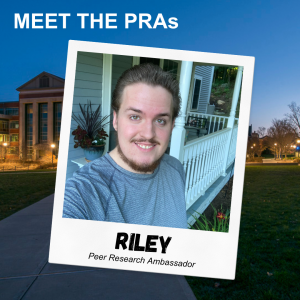 What is the focus of your research?
What is the focus of your research?